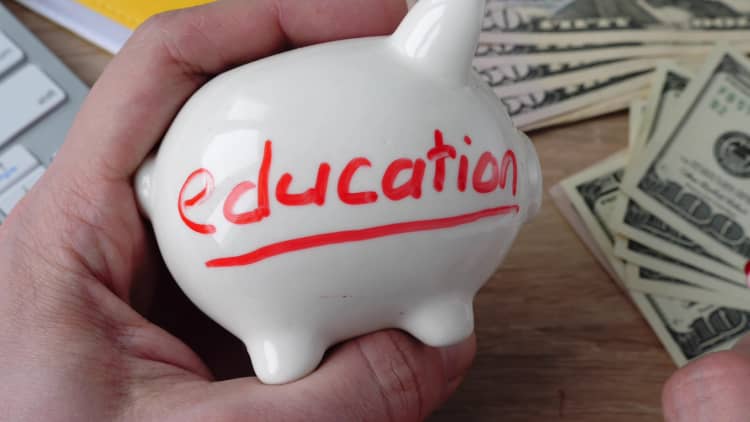Starting Tuesday, students and their families can start filling out the 2020-2021 Free Application for Federal Student Aid, otherwise known as the FAFSA.
While all college-bound high schoolers and those already attending should apply for a chunk of the $120 billion the U.S. Department of Education gives out in the form of grants, loans and work study funds, there are three states with laws on the books that actually require students to fill out a FAFSA in order to graduate from high school.
Illinois and Texas joined Louisiana this year in passing laws that will require high school seniors to fill out the FAFSA as a graduation requirement. Texas, which passed a law that would mandate FAFSA participation this summer, will start implementing the policy during the 2021-2022 academic year. Illinois, which passed its law in August, will enforce the requirement next year. Michigan, Indiana, California and the District of Columbia are also considering similar policies.
The laws do allow for students to receive waivers by submitting paperwork with their local school district acknowledging that they understand what the FAFSA and state student aid options are and have decided not to file. Additionally, school districts can issue a waiver if a student is unable to complete the application because of extenuating circumstances.

"Beginning in the fall of 2020, this law will help give students the freedom to choose the pathway that's best for them — not the pathway they're forced down because nobody gave them the information to explore their options," Illinois Governor J.B. Pritzker said in a statement. "My administration will do everything in our power to make college an option for any student who wants that opportunity."
Louisiana, which was the first state to require students to submit a FAFSA application starting in the fall of 2018, has seen a range of positive outcomes from the policy. Once the state rolled out the requirement, over 77% of high school seniors completed the form, up from roughly 26% the year before, according to the National College Access Network. This year, about 79% of Louisiana students completed the FAFSA.
Additionally, the class of 2018 saw a higher high school graduation rate and a boost among those attending college after graduation, according to the Louisiana Department of Education.
"It's important for policy to try new mechanisms to improve outcomes we would like to see for students," Bill DeBaun, NCAN's director of data and evaluation, tells CNBC Make It. But he says it's too early to tell if mandatory FAFSA policies are the best path forward.
"Early returns seem promising, but it's one graduating class in one state," DeBaun says, adding more evidence is needed from more states before anyone can say definitively what the effects of mandatory FAFSA policies are.
More research is also needed around not only college enrollment statistics, but also looking at how many FAFSA applicants actually complete college.
If a mandatory FAFSA policy pushes more students to enroll and complete a degree, that would be a positive outcome, DeBaun says. But if it contributes to more students going into debt without obtaining a degree, that would be a "fairly serious concern," he adds. Louisiana's class of 2018, meanwhile, is just enrolling in their second year.
Like this story? Subscribe to CNBC Make It on YouTube!



